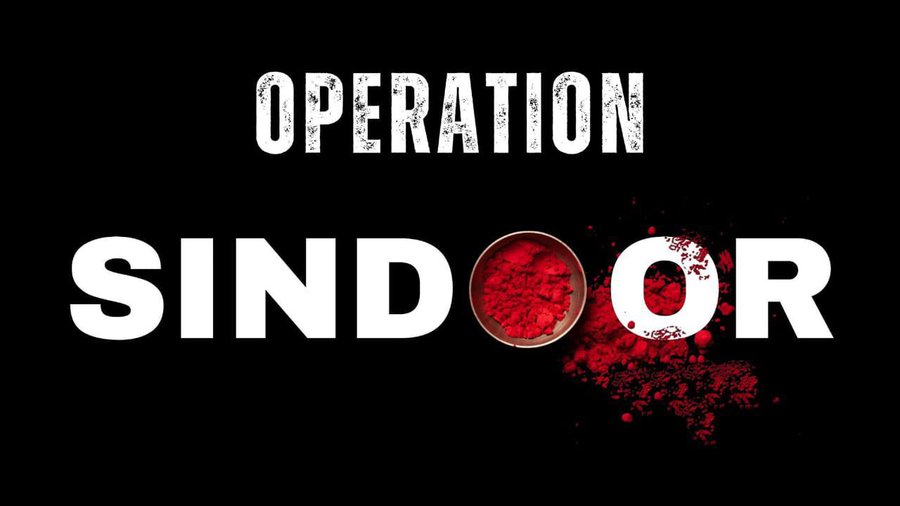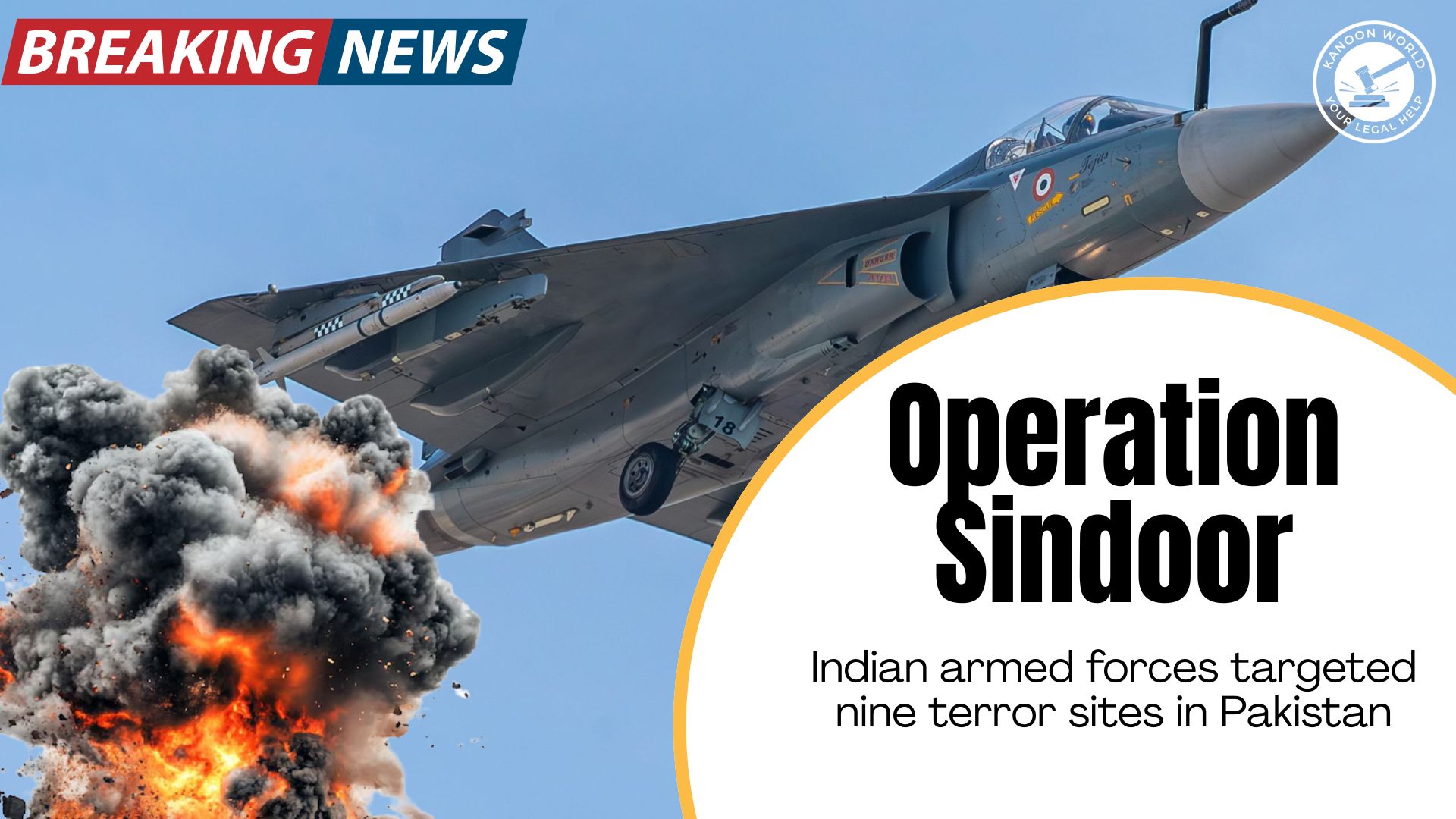Operation Sindoor: Indian armed forces targeted nine terror sites in Pakistan as part of ‘Operation Sindoor’ late Tuesday. Here’s what happened next.

India said early Wednesday that it launched ‘Operation Sindoor’, conducting “a precise and restrained response” that was “designed to be non-escalatory in nature”. It said that it only targeted “known terror camps” and hit no Pakistani civilian, economic or military targets — a statement disputed by Pakistan.
In the wake of the situation, flights to and from Jammu and Kashmir have been halted. The latest strikes are being seen as an escalation of the conflict between India and Pakistan following the terror attack in Pahalgam, Jammu and Kashmir. At least 26 people were killed in the terror attack on April 22.
Here are key things you must know about Operation Sindoor and what happened next:
1. ‘Operation Sindoor’
The Indian Armed Forces launched ‘Operation Sindoor’ late Tuesday. The Ministry of Defence said the forces hit terrorist infrastructure in Pakistan and Pakistan-occupied Jammu and Kashmir “from where terrorist attacks against India have been planned and directed”.
The ministry said nine sites were targeted as part of ‘Operation Sindoor’. “No Pakistani military facilities have been targeted. India has demonstrated considerable restraint in selection of targets and method of execution,” India’s statement added.
2. Nine terror targets
Out of the nine targets chosen by India, four were in Pakistan and the remaining five were in Pakistan-occupied-Kashmir.
Sources told ANI that Indian armed forces successfully struck nine terror targets — four in Pakistan, including Bahawalpur, Muridke, and Sialkot, and five in Pakistan-occupied Jammu and Kashmir (PoJK).
The operation was jointly carried out by the Indian Army, Navy, and Air Force, with the mobilisation of assets and troops.
3. Which 9 terror sites did India target?
Officials told news agency PTI that terror headquarters of banned Jaish-e-Mohammed, Lashkar-e-Taiba and Hizbul Mujahideen were targeted under ‘Operation Sindoor’ with IAF carrying out night raids on the nine hideouts located in Pakistan and Pakistan-occupied-Kashmir.
Among the targets hit in a precise operation were Markaz Subhan Allah at Bahawalpur, Sarjal at Tehra Kalan, Markaz Abbas in Kotli and Syedna Bilal camp in Muzaffarabad (all of the banned Jaish-e-Mohammed terror group), PTI reported.
Markaz Taiba at Murdike, Markaz Ahle Hadith at Barnala and Shwawai Nalla camp at Muzaffarabad (all of banned Lashkar-e-Taiba) and Makaz Raheel Shahid in Kotli and Mehmoona Joya in Sialkot (camps and training centres of banned Hizbul Mujahideen) were also targeted.
4. Pahalgam terror attack
The strikes by the Indian armed forces came “in the wake of the barbaric Pahalgam terrorist attack in which 25 Indians and one Nepali citizen were murdered”, the Centre said. “We are living up to the commitment that those responsible for this attack will be held accountable,” it added.
5. Were there any deaths reported?
Pakistan’s Foreign Ministry released a separate statement saying that women and children died in the attack. Pakistan Army spokesman Lt Gen Ahmed Sharif Chaudhry said at least eight people were killed and 35 others injured in Indian missile attacks on cities in Punjab and PoK, Geo News reported.
However, India said, “No Pakistani military facilities have been targeted. India has demonstrated considerable restraint in selection of targets and method of execution.”
6. Pakistan fires along LoC
Hours after the strike, the Indian Army said that the Pakistan Army resorted to “arbitrary firing, including Artillery shelling from posts across the Line of Control and IB opposite J&K”. The firing from Pakistan’s side took place during the night of 06-07 May 2025, the Army said.
7. Three dead in Pakistan’s firing
“Three innocent civilians lost their lives in indiscriminate firing/shelling [by Pakistan]. Indian Army are responding in a proportionate manner,” the Army added.
8. Pakistan shoots down five Indian jets
Pakistan shot down three Rafale planes, one SU-30 and one MIG-29 flown by India, a Pakistan Military spokesperson told Reuters.
Pakistani Defence Minister Khawaja Muhammad Asif reportedly said his country’s military shot down five Indian jets and took an unknown number of Indian soldiers prisoners.
“They have taken the initiative, we have just responded,” Pakistan’s Asif told Bloomberg Television. “We have been saying all along the last fortnight that we will never initiate anything hostile toward India. But if India attacks, we’ll respond. If India backs down, we’ll definitely wrap up,” he said.
9. Pakistan PM reacts
Pakistani Prime Minister Shehbaz Sharif on Wednesday called India’s actions a “cowardly attack”. He said, “Pakistan reserves the absolute right to respond decisively to this unprovoked Indian attack — a resolute response is already underway…”
10. India to brief on Operation Sindoor
Indian authorities will conduct a media briefing on “Operation Sindoor” at 10:30 am on Wednesday.
11. Flight operations affected
Amid ongoing tensions between India and Pakistan following the Indian Army’s precision strikes on Pakistani terror camps, Air India and Air India Express on Wednesday cancelled all flights to and from certain locations in the country till noon today.
Air India said that flights from Jammu, Srinagar, Leh, Jodhpur, Amritsar, Bhuj, Jamnagar, Chandigarh and Rajkot would be cancelled till further notice and updates from authorities.
“…Two international flights en route to Amritsar are being diverted to Delhi. We regret the inconvenience caused due to this unforeseen disruption,” the post read.
Meanwhile, Air India Express regretted the inconvenience and requested guests to confirm their flight status.
“Multiple flights on our network are impacted due to prevailing restrictions. For alerts and notifications on flights, please ensure your contact details are updated on http://airindiaexpress.com/manage-booking,” the post read.
Spicejet also issued a flight advisory for the airports in the northern parts of the country. Taking to social media X, the airline wrote that airports including Dharamshala, Leh, Jammu, Srinagar and Amritsar would be closed until further notice, adding that departures, arrivals and consequential flights would also be impacted.
“Due to the ongoing situation, airports in parts of northern India, including Dharamshala (DHM), Leh (IXL), Jammu (IXJ), Srinagar (SXR), and Amritsar (ATQ), are closed until further notice. Departures, arrivals, and consequential flights may be impacted. Passengers are advised to plan their journey accordingly and check flight status,” the post read.




Great insight!!